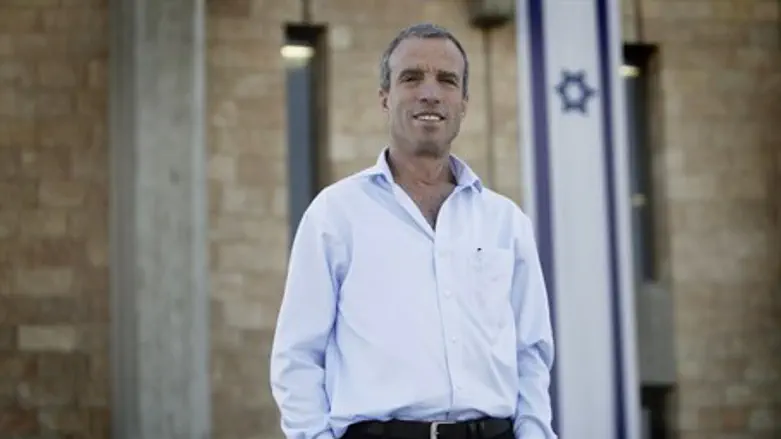
The topic of conversion to Judaism in Israel is still controversial on Friday, six days after a Conversion Bill easing restrictions on the process and removing Chief Rabbinate supervision of it was amended and became a Cabinet administrative decision instead of a Knesset law, as he had originally planned.
Many in the national-religious world have condemned the change; Arutz Sheva spoke to MK Elazar Stern (Hatnua) - one of the main politicians who drafted the original version of the conversion reforms - to hear more about the logic behind the bill.
According to Stern, the Conversion Bill's ratification in its amended form brought two positive changes: that the local Rabbinates can establish new rabbinical courts, and that individuals seeking to convert to Judaism can now approach rabbis outside of their hometown. The latter, he said, enables potential converts to approach a rabbi who they feel understands them the best for the process. Until now, conversion in Israel, recognized worlwide, was done only before rabbinic courts chosen by the Chief Rabbinate.
Overall, Stern stressed that both changes "are with Orthodox rabbis" and according to Jewish law (Halakha) - both in practice and in its philosophical implications. In the original version of the bill that Stern presented, Reform conversion would also have been allowed.
The amended version establishes a forum of leading Orthodox rabbis to select and vet conversion court judges, with the head of the Chief Rabbinate Conversion Authority serving as a member of the forum. A conversion will be valid after the Chief Rabbinate signs it, in the amended bill.
"We all know of the concept of 'seventy faces to Torah,'" he said, quoting a famous precept in Judaism which states that the foundation of Jewish law is the belief in one truth that has various facets by which to understand it, which means that two opinions can both be correct.
Stern noted that this is common practice even in the hareidi world, in such areas as Kosher certification.
"We know many rabbis with different approach[es], not only to conversion but to many issues in Halakha," he said.
Stern also addressed accusations that he was waging a war against the Chief Rabbinate, claiming that it was a "political" issue and that they had initially agreed to the reforms - with a few changes and compromises. The Rabbinate denies this emphatically.
The Chief Rabbinate previously warned it would not accept converts under the new law given the fact that it would not be able to supervise the conversion process, and warned that world rabbis likewise have stated they will be forced not to accept Israeli conversions if the Chief Rabbinate is stripped of its supervision.
In the end, Stern opined, "I think they are going to respect [the changes] - [and] the Chief Rabbinate is not a Halakhic body, but a political body."
While he stressed that he absolutely does not want the Chief Rabbinate rabbinical authorities to feel coerced into accepting the changes, it is still a political decision. He stated "if they don't agree with it, they can leave."